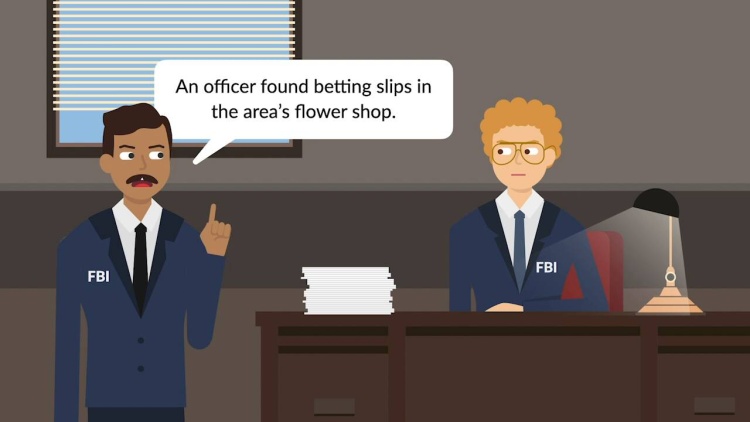United States v. Ceccolini
United States Supreme Court
435 U.S. 268 (1978)

- Written by Sean Carroll, JD
Facts
During a work break, a police officer entered a flower shop to chat with his friend, Lois Hennessey, a store employee. The officer noticed cash sticking out of an envelope in the cash register. The officer conducted an unconstitutional search, opening the envelope and discovering cash and betting slips. The officer then asked Hennessey who owned the envelope and she identified Ralph Ceccolini (defendant), the store’s owner. Information of the officer’s encounter reached the Federal Bureau of Investigation, which was investigating illegal gambling. Four months later, an agent interviewed Hennessey without mentioning the officer’s discovery, and Hennessey voluntarily provided information about Ceccolini’s gambling activities. When brought before a federal grand jury, Ceccolini denied any involvement in gambling operations. Based on Hennessey’s conflicting testimony, the United States (plaintiff) charged Ceccolini with perjury. The United States District Court for the Southern District of New York found Ceccolini guilty of perjury but voided the conviction upon determining that Hennessey’s testimony was inadmissible as the fruit of an illegal search. The government only learned of Hennessey as a witness because the police officer searched the envelope in the shop. The United States Court of Appeals for the Second Circuit affirmed, and the government appealed to the United States Supreme Court, which granted certiorari.
Rule of Law
Issue
Holding and Reasoning (Rehnquist, J.)
Concurrence (Burger, C.J.)
Dissent (Marshall, J.)
What to do next…
Here's why 907,000 law students have relied on our case briefs:
- Written by law professors and practitioners, not other law students. 47,100 briefs, keyed to 996 casebooks. Top-notch customer support.
- The right amount of information, includes the facts, issues, rule of law, holding and reasoning, and any concurrences and dissents.
- Access in your classes, works on your mobile and tablet. Massive library of related video lessons and high quality multiple-choice questions.
- Easy to use, uniform format for every case brief. Written in plain English, not in legalese. Our briefs summarize and simplify; they don’t just repeat the court’s language.





